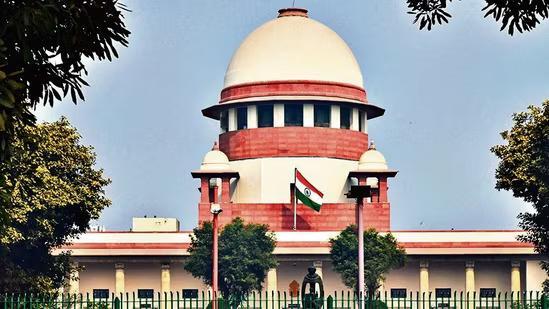
No Action Against Owners of 10 & 15-yr-old Diesel & Petrol Vehicles for 4 Weeks: SC
In a significant development, the Supreme Court has passed an order stating that no “coercive” action will be taken against the owners of over 10-year-old diesel and 15-year-old petrol vehicles in Delhi for a period of four weeks. This decision was made in response to an application filed by the Delhi government, which challenged the ban on these vehicles as a pollution control measure in the capital.
The Delhi government had approached the Supreme Court, seeking an interim stay on the ban imposed by the National Green Tribunal (NGT) on the plying of 10-year-old diesel vehicles and 15-year-old petrol vehicles in the city. The NGT had ordered the ban in December 2018, citing the severe air pollution crisis in Delhi.
The Delhi government argued that the ban would cause immense hardship to the public, especially to those who rely on these vehicles for their livelihood. They also pointed out that the government was not equipped to provide alternative transportation facilities to the affected public.
The Supreme Court, while hearing the application, took into account the Delhi government’s concerns and decided to grant a four-week reprieve to the owners of the affected vehicles. The court stated that during this period, the Delhi government would work on providing alternative transportation facilities to the public, and the owners of the affected vehicles would be given a chance to comply with the norms.
The Supreme Court’s decision is seen as a relief to the thousands of vehicle owners who would have been affected by the ban. The ban would have resulted in a significant disruption to public transportation in Delhi, and the owners of the affected vehicles would have been forced to look for alternative means of transportation.
The Delhi government has welcomed the Supreme Court’s decision, stating that it would work towards providing alternative transportation facilities to the public during the four-week period. The government has also announced that it would set up additional bus services and increase the frequency of existing bus services to reduce the burden on the public.
The Supreme Court’s decision has also been welcomed by the owners of the affected vehicles, who are relieved that they will not be forced to abandon their vehicles for the time being. However, they are also concerned about the long-term implications of the ban and are hoping that the government will come up with a more sustainable solution to the air pollution crisis.
The air pollution crisis in Delhi is a serious issue that has been affecting the city for several years. The city’s air quality has consistently been above the safe limits, posing serious health risks to its residents. The Delhi government has been working towards reducing air pollution in the city, but the task has been challenging due to the lack of resources and infrastructure.
The ban on 10-year-old diesel vehicles and 15-year-old petrol vehicles was seen as a step towards reducing air pollution in Delhi. Diesel vehicles emit more pollutants than petrol vehicles, and older vehicles tend to be more polluting due to their lack of emission control technologies. The ban was aimed at reducing the number of polluting vehicles on the road and improving the air quality in the city.
However, the ban has been opposed by many, who argue that it is unfair to the owners of the affected vehicles and would cause immense hardship to the public. They also argue that the government should focus on providing alternative transportation facilities to the public rather than banning vehicles.
In conclusion, the Supreme Court’s decision to grant a four-week reprieve to the owners of 10-year-old diesel and 15-year-old petrol vehicles in Delhi is a significant development in the ongoing battle against air pollution in the city. While the decision is seen as a relief to the affected public, it also highlights the need for a more sustainable solution to the air pollution crisis.






